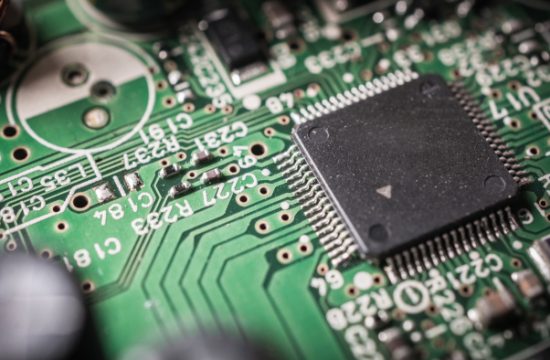
No, this is not clickbait. Yes, I am aware that there seems to be a consensus that the new RTX 2080 cards are not great for mining – many users have made their mining benchmarks public and the results were pretty underwhelming. There is a catch, though.
Some days ago, I have finally received my Gigabyte RTX 2080 Windforce OC and I have done my own tests. My results were way better, which is why I am writing this article. Maybe I was lucky enough to find the sweet spot for undervolting and OC – most of the existing reviews are based on stock voltage and clock settings, and hence do not show the full mining potential of the card.
Whatever is the case, I am impressed by the mining performance of the new RTX 2080. In this article, you will see my benchmarks, as well as the settings I am using.
Gigabyte RTX 2080 Windforce OC Specs
- Core Clock: 1800 MHz in OC mode
- 1785 MHz in Gaming mode
- (Reference Card: 1710 MHz)
- CUDA® Cores: 2944
- Memory Clock: 14000 MHz
- Memory Size: 8 GB
- Memory Type: GDDR6
- Memory Bus: 256 bit
- Memory Bandwidth: 448 GB/s
- Card size: 280.35*116.45*40.24mm
The RTX 2080 is the latest addition by Nvidia and it features better performance than the 1080Ti, as well as hardware support for Ray Tracing. This allows the RTX2080 to perform great both at gaming and mining.
The Gigabyte version of the card comes with the core overclocked from factory, three fans and a decent heatsink. Compared to an average 1080Ti, the Gigabyte RTX 2080 Windforce costs ~90 dollars more.
Specs: RTX 2080 vs. GTX 1080Ti vs. GTX 1080
| RTX 2080 | GTX 1080Ti | GTX 1080 | |
| Memory | 8 GB GDDR6 | 11 GB GDDR5X | 8 GB GDDR5X |
| Memory Interface Width | 256-bit | 352-bit | 256-bit |
| Memory Bandwidth | 448 GB/s | 484 GB/s | 320 GB/s |
| CUDA Cores | 2944 | 3584 | 2560 |
| Boost Clock | 1830 MHz | 1582 MHz | 1733 MHz |
| Price | $ 790 USD | $ 700 USD* | $ 470 USD** |
(*) For a Gigabyte OC 11GB card
(**) For a Gigabyte OC 8GB card
Unboxing Gigabyte RTX 2080 Windforce OC
Recommended Hardware for 6x Gigabyte RTX 2080 Mining Rig
Ethash Algorithm
- Ethereum (ETH)
- Ethereum Classic (ETC)
- Ubiq (UBQ)
- Expanse (EXP)
- Soilcoin (SOIL)
- Musicoin (MUSIC)
- etc..
Equihash Algorithm
- ZCash (ZEC)
- Zclassic (ZCL)
- Komodo (KMD)
- Hush (HUSH)
- Zencash (ZEN)
- etc..
CryptoNight Algorithm
- Monero (XMR)
- ByteCoin (BCN)
- Sumokoin (SUMO)
- Karbowanec (KRB)
- DigitalNote (XDN)
- etc..
On paper, the RTX 2080 not only loses to the GTX 1080Ti in four of the six listed categories, it also loses to the GTX 1080 when it comes to price/features ratio. The only innovations seem to be the new GDDR6 memory and higher boost clocks. Eventually though, this does not prevent the RTX 2080 from being a decent miner. Let me show you the benchmarks:
Gigabyte RTX 2080 Windforce OC Mining Benchmarks
The first thing that most reviewers stated is that the RTX 2080 is very power hungry. While this is true for a card with stock settings, I was able to undervolt my RTX 2080 without losing too much hashrate, to a point it now consumes 70% less power than a GTX 1080Ti.
In fact, this makes the RTX 2080 more power efficient than the GTX 1080/ GTX 1080Ti. The RTX 2080 contrasts the most with the GTX 1080Ti by featuring up to 57% more MH/s per Watt.
Below I have listed the card’s benchmarks with different coins and algos, as well as a comparison with two of its predecessors (GTX 1080 and 1080Ti):
Gigabyte RTX 2080 WF OC Ethereum Hashrate Stock Clocks (Micron)
system power draw: 35w

Ethereum Mining
Ethash Ethereum Classic (ETC), Ubiq (UBQ), Expanse (EXP), Soilcoin (SOIL), Pirl (PIRL), Ellaism (ELLA), Metaverse (ETP), Callisto (CLO) etc..
Hashrate 41.1 MH/s
- Clocks +150/+850
- Power Limit 47
- Power Draw 105w
RTX 2080 VS GTX 1080 Ti
| GPU Model | Hashrate & Power Draw | Mh/s per 1watt |
| Gigabyte RTX 2080 | 41.1 Mh/s ; 105w | 0.391 mh/s per watt |
| Gigabyte GTX 1080 Ti | 36.5 Mh/s ; 150w | 0.243 mh/s per watt |
| Gigabyte GTX 1080 Ti (with pill) | 54 Mh/s ; 175w | 0.308 mh/s per watt |
| MSI GTX 1080 Ti | 37.6 Mh/s ; 130w | 0.289 mh/s per watt |
| MSI GTX 1080 Ti (with pill) | 51.3 Mh/s ; 165w | 0.310 mh/s per watt |
Ethereum Dual Mining Blake2s and Keccak
Verge (XVG), BlakeStar (BLAS) / Maxcoin (MAX), Creativecoin (CREA), SmartCash (SMART) etc..
Ethereum 41.8 Mh/s – Verge (B2s) 1114 Mh/s
- Clocks +150/+850
- Power Limit 55
- Power Draw 125w
- -dcri 80
Ethereum 40.3 Mh/s – Keccak 403 Mh/s
- Clocks +150/+850
- Power Limit 60
- Power Draw 135w
- -dcri 31
Ethereum Dual Mining LBRY and Pascal
Ethereum 41.5 Mh/s – LBRY 66 Mh/s
- Clocks +150/+850
- Power Limit 50
- Power Draw 110w
- -dcri 60
Ethereum 41.8 MH/s – Pascal Lite 640 Mh/s
- Clocks +150/+850
- Power Limit 55
-
Power Draw 125w
- -dcri 46

ZCash (Equihash) Mining Performance
Gigabyte RTX 2080 Equihash Mining Hashrate Performance & Power Consumption
Equihash coins algorithm: Bitcoin Gold (BTG), Zencash (ZEN), Zclassic (ZCL), Hush (HUSH), Komodo (KMD), BitcoinPrivate (BTCP)
Hashrate 680 Sol/s
- Clocks +150/+850
- Power Limit 60
- Power Draw 135w
RTX 2080 VS GTX 1080 Ti
| GPU Model | Hashrate & Power Draw | Mh/s per 1watt |
| Gigabyte RTX 2080 | 680 Sol/s ; 145w | 4.689 Sol/s per watt |
| Gigabyte GTX 1080 Ti | 645 Sol/s ; 175w | 3.685 Sol/s per watt |
| MSI GTX 1080 Ti | 690 Sol/s ; 160w | 4.312 Sol/s per watt |

BitcoinGold (Equihash 144,5) Mining Performance
Gigabyte RTX 2080 Equihash 144,5 Mining Hashrate Performance & Power Consumption
Hashrate 60 Sol/s
- Clocks +150/+850
- Power Limit 65
- Power Draw 135w

Monero (CryptoNight V7) Mining Performance
Gigabyte RTX 2080 CryptoNight V7 Mining Hashrate Performance & Power Consumption
CryptoNight coins algorithm: Monero (XMR), Electroneum (ETN), Karbo (KRB), DigitalNote (XDN), MoneroOriginal (XMO), Dinastycoin (DCY)
Hashrate 893 H/s
- Clocks +150/+850
- Power Limit 65
- Power Draw 120w
RTX 2080 VS GTX 1080 Ti
| GPU Model | Hashrate & Power Draw | Mh/s per 1watt |
| Gigabyte RTX 2080 | 893 Sol/s ; 120w | 7.441 H/s per watt |
| Gigabyte GTX 1080 Ti | 895 Sol/s ; 140w | 6.392 H/s per watt |
| MSI GTX 1080 Ti | 890 Sol/s ; 135w | 6.592 Sol/s per watt |

Ravencoin (X16r) Mining Performance
Gigabyte RTX 2080 x16r Mining Hashrate Performance & Power Consumption
X16R coins algorithm: Ravencoin (RVN), Motion (XMN)
Hashrate 26 MH/s
- Clocks +150/+850
- Power Limit 70
- Power Draw 155w
RTX 2080 VS GTX 1080 Ti
| GPU Model | Hashrate & Power Draw | Mh/s per 1watt |
| Gigabyte RTX 2080 | 26 Mh/s ; 155w | 0.167 Mh/s per watt |
| Gigabyte GTX 1080 Ti | 16 Mh/s ; 150w | 0.106 Mh/s per watt |
| MSI GTX 1080 Ti | – | – |

Nexus (SHA3) Mining Performance
Gigabyte RTX 2080 SHA3 Mining Hashrate Performance & Power Consumption
Hashrate 255 Mh/s
- Clocks +150/-502
- Power Limit 55
- Power Draw 125w
RTX 2080 VS GTX 1080 Ti
| GPU Model | Hashrate & Power Draw | Mh/s per 1watt |
| Gigabyte RTX 2080 | 255 Mh/s ; 125w | 2.040 Mh/s per watt |
| Gigabyte GTX 1080 Ti | 212 Mh/s ; 150w | 1.413 Mh/s per watt |
| MSI GTX 1080 Ti | 250 Mh/s ; 130w | 1.923 Mh/s per watt |

Luxcoin PHI Mining Performance
Gigabyte RTX 2080 PHI2 Mining Hashrate Performance & Power Consumption
PHI1612 coins algorithm: Folm (FLM), Seraph (SERA)
Hashrate 9.4 Mh/s
- Clocks +150/-200
- Power Limit 55
- Power Draw 120w

Verge Lyra2REv2 Mining Performance
Gigabyte RTX 2080 Lyra2REv2 Mining Hashrate Performance & Power Consumption
LyraREv2 coins algorithm: Vertcoin (VTC), Verge (XVG), Straks (STAK), Galactrum (ORE), Monacoin (MONA), Hanacoin (HANA)
Hashrate 69 Mh/s
- Clocks +150/+500
- Power Limit 60
- Power Draw 135w

ZCoin Lyra2z Mining Performance
Gigabyte RTX 2080 Lyra2z Mining Hashrate Performance & Power Consumption
LyraREv2 coins algorithm: ZCoin (XZC), Gincoin (GIN), MCT+ (MCT), Gentarium (GTM), Vertical (VTL), Mano (MANO)
Hashrate 3.3 Mh/s
- Clocks +150/+500
- Power Limit 100
- Power Draw 110w

Aeon CryptoNight Lite Mining Performance
Gigabyte RTX 2080 CryptoNight Lite Mining Hashrate Performance & Power Consumption
CryptoNight Lite algorithm coins : Petcoin (XPET), Aeon (AEON)
Hashrate 1,285 Mh/s
- Clocks +150/+500
- Power Limit 65
- Power Draw 110w

Xdna HEX Mining Performance
Gigabyte RTX 2080 HEX Mining Hashrate Performance & Power Consumption
Hashrate 19 Mh/s
- Clocks +150/+850
- Power Limit 60
- Power Draw 135w

Aion Equihash 210,9 Mining Performance
Gigabyte RTX 2080 Equihash 210,9 Mining Hashrate Performance & Power Consumption
Hashrate 320 Sol/s
- Clocks +150/+850
- Power Limit 60
- Power Draw 135w

Bitcoin Interest ProgPow Mining Performance
Gigabyte RTX 2080 ProgPow Mining Hashrate Performance & Power Consumption
Hashrate 22.5 Mh/s
- Clocks +150/+0
- Power Limit 65
- Power Draw 145w

NiceHash Mining Performance
Gigabyte RTX 2080 Nicehash Mining Profitability
NiceHash algorithms: Keccak, NeoScrypt, Lyra2REv2 (not working), DaggerHashimoto, DaggerHashimoto/Decred,Pascal, Decred, Equihash (not working), Pascal, Blake2s, CryptoNightV7, Lyra2Z (not working), X16r
In Conclusion
Yeah, crypto mining is going through some pretty dark days and not all of you feel like investing in new mining rigs for now. Those of you who do plan on expanding your farms might find a new friend in RTX 2080 cards. The low power consumption makes up for the extra price in the long run, unless you have free electricity.
Here’s another thing to keep in mind. The gaming community seems a bit unimpressed with the new RTX 20xx. Many gamers bought the RTX 2080/2080Ti in hopes to enjoy the new Ray Tracing technology but guess what: as for today, there is no game that would support Ray Tracing. This is one of the reasons why there seems to be little demand for RTX 20xx cards for now.
If you want to add some of those to your rig, this might be the right time to stock up on them, before gaming companies start to implement the new technology in their games.
I would also keep in mind that the driver and miner support for the card is still not optimal. As always, I expect improvements and tweaks in the near future.
-
Mining Performance -
Power Consumption -
Colling -
Price
Thank you for reading. As always, your comments, suggestions and questions are welcome.
Subscribe and stay tuned for further updates!













